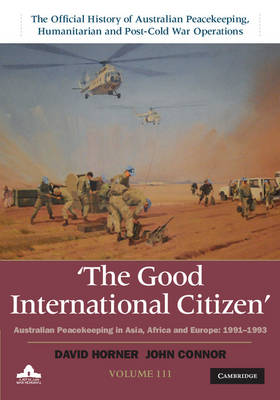The Official History of Australian Peacekeeping, Humanitarian and Post-Cold War Operations 5 Volume Set
2 primary works
Volume 2
This volume of the Official History of Australian Peacekeeping, Humanitarian and Post-Cold War Operations is the first comprehensive study of Australia's role in the peacekeeping and peace enforcement operations that developed at the end of the Cold War. It recounts vital missions including Namibia (1989-90), Iran (1988-90) and Pakistan/Afghanistan (1989-93), and focuses primarily on Australia's reaction to Iraq's invasion of Kuwait in 1990, including its maritime interception operations, and its controversial participation in the 1991 Gulf War. With exclusive access to Australian Government records and through extensive interviews, David Horner explains the high-level political background to these activities and analyses the conduct of the missions. He brings to life the little-known, yet remarkable stories of many individuals who took part. This is an authoritative and compelling history of how members of the Australian Defence Force engaged with the world at a crucial time in international affairs.
Volume 3
Volume 3 of the official history of Australian peacekeeping, humanitarian and post-cold war operations explores Australia's involvement in six overseas missions following the end of the Gulf War: Cambodia (1991–99); Western Sahara (1991–94); the former Yugoslavia (1992–2004); Iraq (1991); Maritime Interception Force operations (1991–99); and the contribution to the inspection of weapons of mass destruction facilities in Iraq (1991–99). These missions reflected the increasing complexity of peacekeeping, as it overlapped with enforcement of sanctions, weapons inspections, humanitarian aid, election monitoring and peace enforcement. Granted full access to all relevant Australian Government records, David Horner and John Connor provide readers with a comprehensive and authoritative account of Australia's peacekeeping operations in Asia, Africa and Europe.

